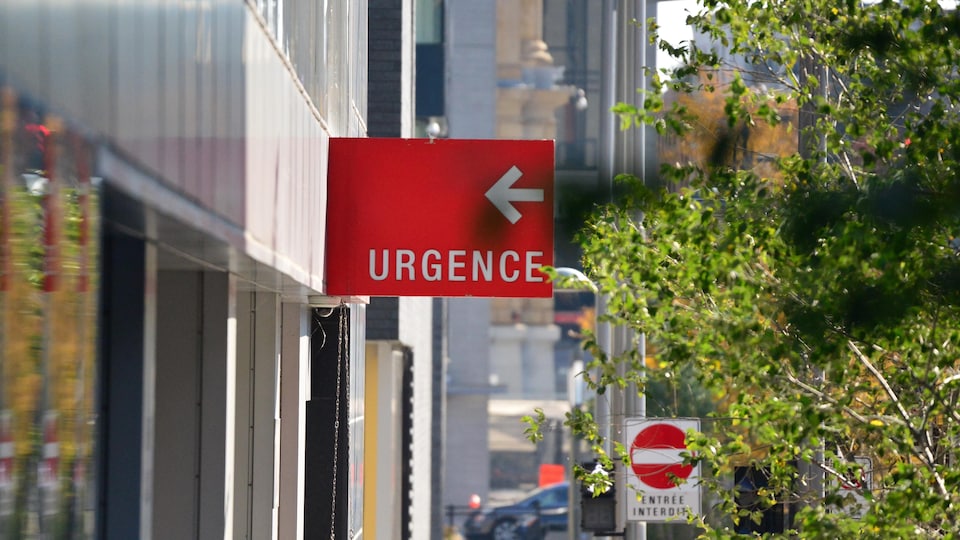Blue coat, latex gloves, syringe, dressing envelope: it’s been almost 25 minutes since I arrived at the doctor’s office that a lot of medical waste goes in the trash.
This is just my annual check-up, imagine the waste produced by a hospital that doesn’t ring a bell. Added to this analysis are the greenhouse gas (GHG) emissions produced by these establishments. In fact, according to some studies, Canadian health systems are responsible for 5 to 10% of the nation’s GHGs.
CHUM turns green
Dr. Stephan Williams and his colleagues from the anesthesiology department of the Center hospitalier de l’Université de Montréal (CHUM) have long thought about pollution and GHG emissions generated by hospitals, especially with anesthetic gases.
For several years now, they have been calculating their emissions and trying to reduce them. By making some changes, within their own department, they have already started the transition.
Dr. explained. Stephan Williams that there are various technologies available to reduce the amount of gas that goes into the atmosphere. CHUM has installed new anesthetic stations that minimize gas leaks. They also use anesthetic agents that emit fewer GHGs.
” Anesthetic gases are called a carbon hotspotthey can be very dirty. “
There are other gas anesthesia options, he pointed out. It is possible, according to the doctor, to use intravenous products with a precision pump that have an equal or better anesthetic effect. Furthermore, patients will have less nausea on awakening.
The CHUM is also equipped with a module that draws anesthetic gas before it escapes the hospital chimney.
He and his team also gave scientific presentations to educate their colleagues and help them make this transition to carbon neutrality.
Moves that pay off all front
With these changes, the anesthesia department expects to reduce its greenhouse gas emissions from 3,500 tons in 2017 to 150 tons by 2023. The bill is getting easier: anesthetic gas costs for CHUM have dropped from $ 532,000 in 2017 up to $ 106,000 in 2022.
To recover 3,500 tonnes of GHG from the anesthesia department, CHUM must plant trees in an area equivalent to 10 Mount Royal park.
CHUM senior management members were challenged by these positive results. They assigned Dr. Stephan Williams and his team developed a plan that would make it possible to achieve carbon neutrality for the establishment.
” We have become aware of the importance of this topic and we have mobilized ourselves, we will mobilize even more in the coming years so that everyone understands the importance of this attitude. “
Following the initial assessment, Drs. Williams and his team have taken a series of measures, including the following: eliminating fossil fuels for heating and transportation, reducing the use of disposable items and appliances and, when possible, exchanging them for reusable instruments, and generate recovery of residual materials (reduce, recycle and compost).
” We know that the climate crisis is the number one health threat in the 21st century. And we know that the solution to the climate crisis is to stop emitting greenhouse gases. This is what we are trying to do with CHUM. “
To achieve this, all departments need to give their share of effort, the doctor specified. Governments also need to respond. Because, according to Stephan Williams, the Ministry of Health and Social Services (MSSS) has a strike force through its purchasing power. Thus, all decisions about supply must be reviewed. The ministry must select suppliers and products that respect the environment.
Health Canada should also examine its ways of doing things, Drs. Stephan Williams, among other things for the approval of drugs and anesthetic gas.
” [Les employés de] Health Canada, too, is not trained to consider the greenhouse gas emissions of medicines. There is really a cultural change to be made on that side. “
Health Canada knows that some types of gases used for anesthesia are more polluting than others. The federal ministry says it is studying this question as part of reviewing the strategy to reduce GHG emissions within the health system.
Non -existent frameworks
Claudel Pétrin-Desrosiers is a family physician, president of the Quebec Association of Physicians for the Environment, helped launch the Quebec Sustainable Health Action Network and is completing a master’s degree in the environment.
He has also been interested in the importance of cultivating health systems over a long period of time. He affirms that there are more and more initiatives in various establishments in Quebec, but there is no national approach to MSSS yet. According to him, the lack of a clear framework is extremely lacking and makes it very difficult to achieve the goal of carbon neutrality.
In some establishments, at present, all that is present is paper recycling, exclaims the young doctor. Quebec’s health networks are required to have sustainable development committees, but because there is no clear framework, according to Ms. Pétrin-Desrosiers, there is little of everything and whatever.
Since the implementation of the Sustainable Development Act in Quebec, each department has been required to have certain specific goals, but Claudel Pétrin-Desrosiers insists there is no plan for updating or conducting a situation analysis on the MSSS.
Claudel Pétrin-Desrosiers feels that ministers and senior officials do not understand the urgency of the climate situation.
We requested an interview with Quebec Health Minister Christian Dubé, but he denied our request. The Ministry of Health has specified, however, that the network of health and social services is not subject to the Sustainable Development Act, but has nevertheless adopted a voluntary approach vis-à-vis -it.
In 2015, the government itself set the goal that by 2020, 25% of establishments in the health network would have adopted a sustainable development approach.
As of March 31, 2020, of the public establishments monitored, 30% had taken a formal sustainable development approach and 100% of public establishments had made at least one formal commitment to sustainable development.
In Ottawa, Health Canada said it recognizes the urgency of greening the nation’s health systems. And the department is considering creating a Carbon Neutrality Advisory Group in February 2021. This group of independent experts is mandated to speak to Canadians and advise the Minister of Environment and Climate Change on ways to achieve neutrality. of carbon in 2050.
Canada supported the priorities on the health agenda of the 26th Conference of the Parties to the United Nations Framework Convention on Climate Change (COP26), including those on climate-resilient health systems and sustainable health systems and low carbon. Health Canada recognizes that health is a jurisdiction shared across the provinces and therefore must work with its counterparts.
For Dr. Claudel Pétrin-Desrosiers and Stephan Williams, the health system has a duty of consistency.
” If I treat people every day, I know how much the climate crisis will affect their health. For me, there is a duty of consistency that the system in which I receive them is also alert in relation to these questions, then does its part and leads by example. “
The UK model
Dr. considers. Claudel Pétrin-Desrosiers the United Kingdom as a model student in terms of environmentally responsible skills. The country has established a national strategy for its health system to achieve carbon neutrality by 2040 and aims for 2046 for the entire supply chain.
Every year they hit their targets. What is more interesting, according to the doctor, is that their system is also a public system similar to that in Quebec. Who is experiencing both the challenges of staff shortages and waiting lists. But the UK government has still decided to make carbon neutrality a priority for its healthcare system.
According to the two doctors, the greening of the health network is possible and it is really political will.
Source: Radio-Canada


